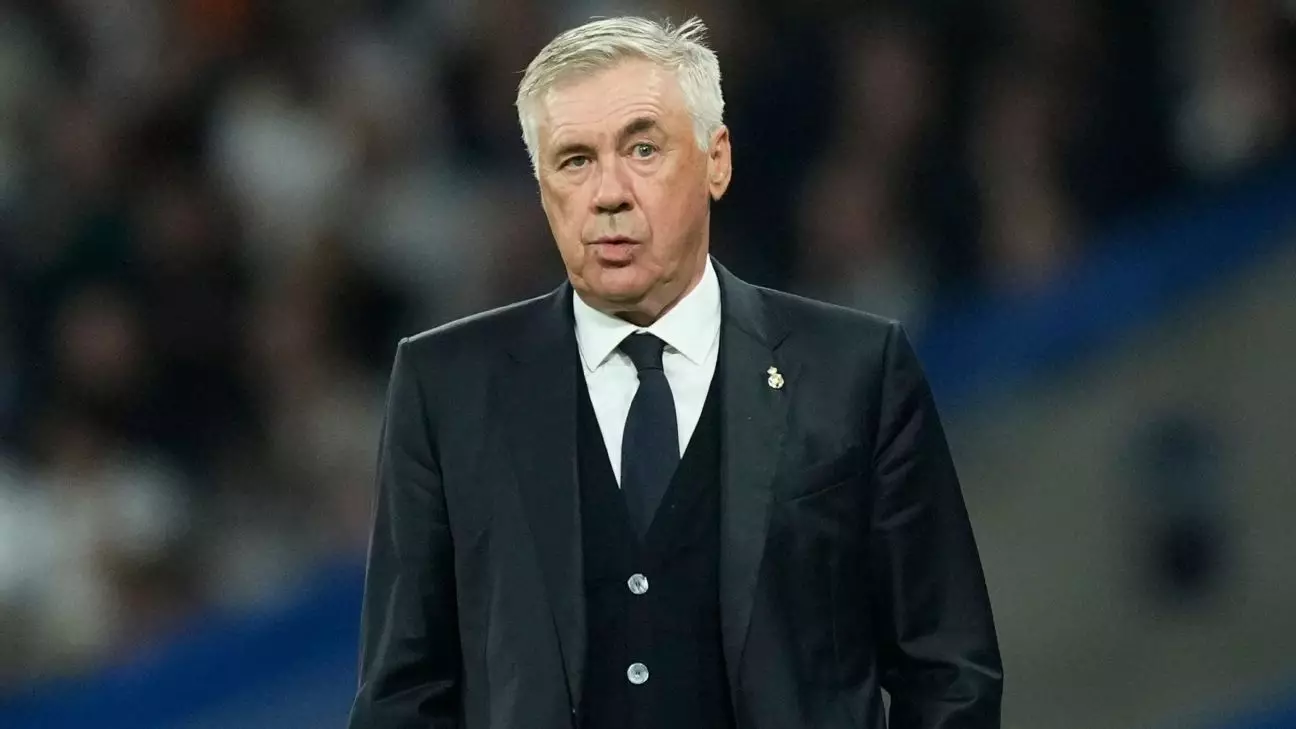In the high-stakes world of football, few clubs carry as much weight and expectation as Real Madrid. Recently, head coach Carlo Ancelotti found himself in a maelstrom of pressure after the team suffered a staggering 5-2 defeat to their fierce rivals, Barcelona, during the Spanish Supercopa. This loss prompted urgent discussions with CEO José Ángel Sánchez, reflecting an atmosphere where results shape the narrative. Despite the setbacks, Ancelotti maintains that the support from the club remains unwavering, showcasing a notable aspect of leadership that prioritizes collaboration over conflict.
At a recent press conference, Ancelotti was keen to emphasize his solid rapport with club president Florentino Pérez and the management team. He affirmed his feeling of being supported from the moment of his arrival, which speaks volumes about the culture at Real Madrid. Such backing, he asserts, is vital for navigating the choppy waters of football management, especially when performance is inconsistent. This sentiment raises questions about the balance of accountability and support within elite football clubs. Ancelotti’s outlook reflects a coaching philosophy that values dialogue and teamwork in addressing challenges rather than succumbing to the pressure of public sentiment.
Performance Under Pressure: The Mixed Bag of Results
Despite earning significant silverware earlier in the season, including the UEFA Super Cup and the FIFA Intercontinental Cup, Real Madrid’s performances have been a topic of debate. After a 5-2 victory over Celta Vigo in the Copa del Rey that belied a shaky start, fans expressed their frustrations through whistles aimed at both Ancelotti and the players. This complex relationship between fans and teams epitomizes the inherent tension present in modern football—where passionate supporters expect excellence and swift results. Ancelotti’s acknowledgment of the crowd’s reactions as fair highlights his humility and readiness to face scrutiny, traits that are essential for managers in a pressure-cooker environment.
Embracing Improvement and Learning
Ancelotti’s reflections on the need for continuous improvement resonate deeply within the broader narrative of the game. He regards criticism, particularly after disappointing performances, as part of a manager’s journey. His assertion that complacency can lead to a decline in performance is a salient reminder of the ongoing learning curve inherent in coaching at the elite level. By proclaiming his own need to improve, Ancelotti not only sets a strong precedent for his players but also cultivates an environment where learning and adaptation are paramount. This stance is particularly essential for a squad like Madrid’s, which is populated by both experienced and younger talents eager to evolve.
The transfer window thawing has led to speculation around potential signings, notably the club’s interest in Liverpool’s Trent Alexander-Arnold. While Ancelotti refrained from confirming any discussions, his openness to dialogue with Sánchez invites speculation about the club’s long-term strategies. The ability to recognize shortcomings and actively address them through transfer activity speaks to a proactive management philosophy. Ancelotti’s leadership style advocates for a dynamic approach where personnel changes could provide essential boosts to squad morale and performance.
Among the silver linings in the current Madrid campaign has been the stellar rise of Kylian Mbappé, whose stunning performances have not gone unnoticed. Ancelotti praised the young star for his increasing involvement on the pitch and expressed optimism regarding his leadership capabilities within the team. The evolution of players into pivotal roles is crucial for a club like Real Madrid, where expectations are ever high. Ancelotti’s focus on individual development reflects a broader truth in football: that the collective strength of a squad is often built on the shoulders of a few exceptional players.
Carlo Ancelotti’s journey at Real Madrid this season embodies the complexities of high-performance coaching. Despite experiencing lows, his steadfast commitment to improvement, open communication, and strategic vision signal a leader capable of steering the ship through turbulent waters. As the seasons change and challenges arise, the ability of a coach to adapt while fostering resilience within his squad will ultimately determine the success of the illustrious club he leads.

Leave a Reply